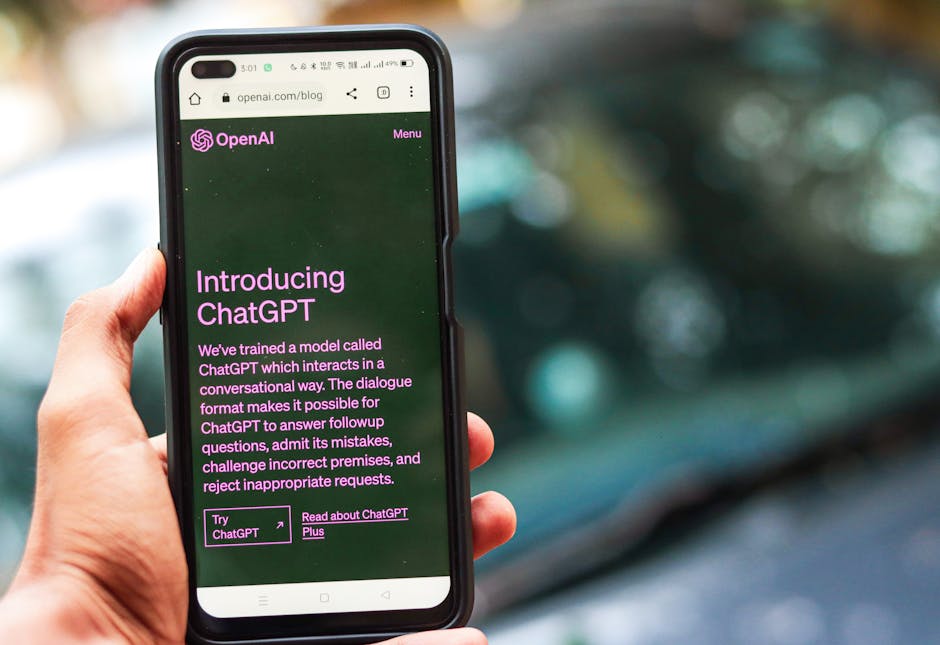In a bold and ambitious move, OpenAI has set its sights on transforming ChatGPT from a conversational AI tool into the backbone of your digital life. The company envisions a future where ChatGPT evolves into a full-fledged operating system (OS), seamlessly integrating with your devices, applications, and daily routines. This groundbreaking shift could redefine how we interact with technology, making AI the central hub of our digital ecosystems.
The Vision: ChatGPT as an OS
Traditionally, operating systems like Windows, macOS, and Android have served as the foundational layer for managing hardware and software on our devices. OpenAI’s vision for ChatGPT goes beyond this paradigm. Instead of being a passive platform that merely executes commands, ChatGPT would act as an intelligent, conversational interface that understands and anticipates user needs.
Imagine a world where you don’t need to navigate through menus or remember specific commands. Instead, you simply tell your device what you want, and ChatGPT handles the rest. Whether it’s scheduling meetings, managing files, or even controlling smart home devices, ChatGPT could become the ultimate digital assistant, streamlining tasks and enhancing productivity.
The Building Blocks
OpenAI’s plan to turn ChatGPT into an operating system isn’t just a pipe dream. The company has been laying the groundwork for this transformation through a series of strategic advancements:
- Multimodal Capabilities: ChatGPT is no longer limited to text. With the integration of voice, image, and even video processing, it can interact with users in more intuitive and human-like ways.
- API Integration: OpenAI has made its API widely available, allowing developers to embed ChatGPT into a variety of applications. This paves the way for seamless integration across platforms.
- Customization and Personalization: The ability to fine-tune ChatGPT for specific use cases means it can adapt to individual preferences and workflows, making it a truly personalized OS.
- Enhanced Memory and Context Awareness: Future iterations of ChatGPT are expected to have better memory retention and context understanding, enabling it to manage complex, long-term tasks.
Potential Applications
The implications of ChatGPT as an operating system are vast and transformative. Here are a few potential applications:
- Smart Home Management: ChatGPT could serve as the central hub for controlling smart devices, from thermostats to security cameras, all through natural language commands.
- Workplace Efficiency: In professional settings, ChatGPT could automate repetitive tasks, manage emails, and even assist with project management, freeing up time for more strategic work.
- Education and Learning: Students could use ChatGPT as a personalized tutor, adapting to their learning pace and providing instant explanations for complex topics.
- Healthcare: ChatGPT could assist healthcare professionals by managing patient records, scheduling appointments, and even offering preliminary diagnostic support.
Challenges and Concerns
While the idea of ChatGPT as an operating system is exciting, it’s not without challenges. Privacy and security are major concerns, as an AI-powered OS would have access to vast amounts of personal data. OpenAI would need to implement robust safeguards to protect user information and ensure transparency in how data is used.
Another challenge is reliability. As an operating system, ChatGPT would need to handle critical tasks with near-perfect accuracy. Any errors or misunderstandings could have significant consequences, especially in high-stakes environments like healthcare or finance.
The Road Ahead
OpenAI’s vision for ChatGPT as an operating system is still in its early stages, but the potential is undeniable. As AI continues to advance, the line between human and machine interaction will blur, making technology more intuitive and accessible.
For now, OpenAI is focused on refining ChatGPT’s capabilities and addressing the challenges that come with such a transformative shift. If successful, the company could usher in a new era of computing, where AI is not just a tool but the very foundation of our digital lives.
As we look to the future, one thing is clear: the operating system of tomorrow may not be a platform we navigate but an intelligent assistant we converse with. And OpenAI is leading the charge to make that vision a reality.




